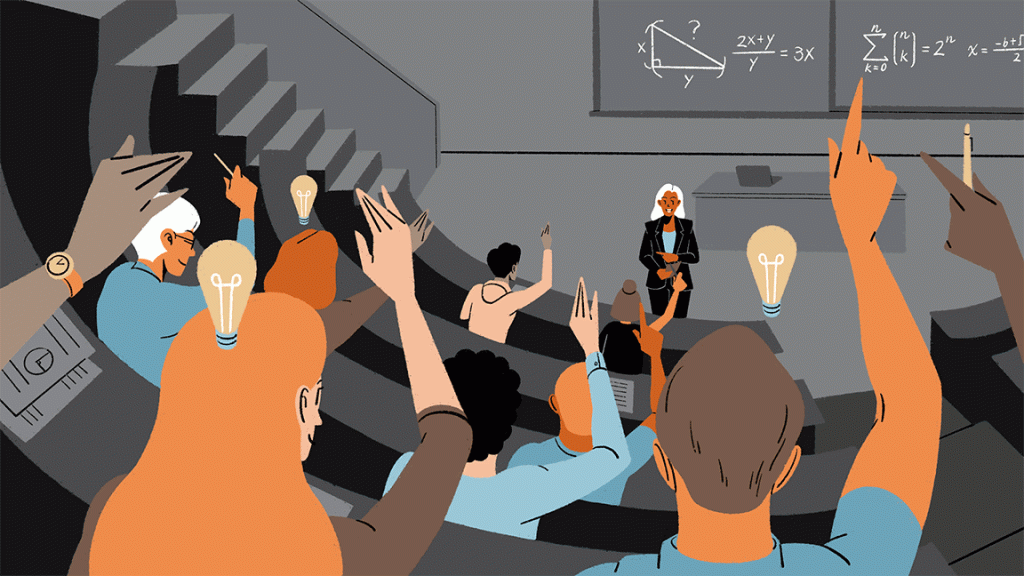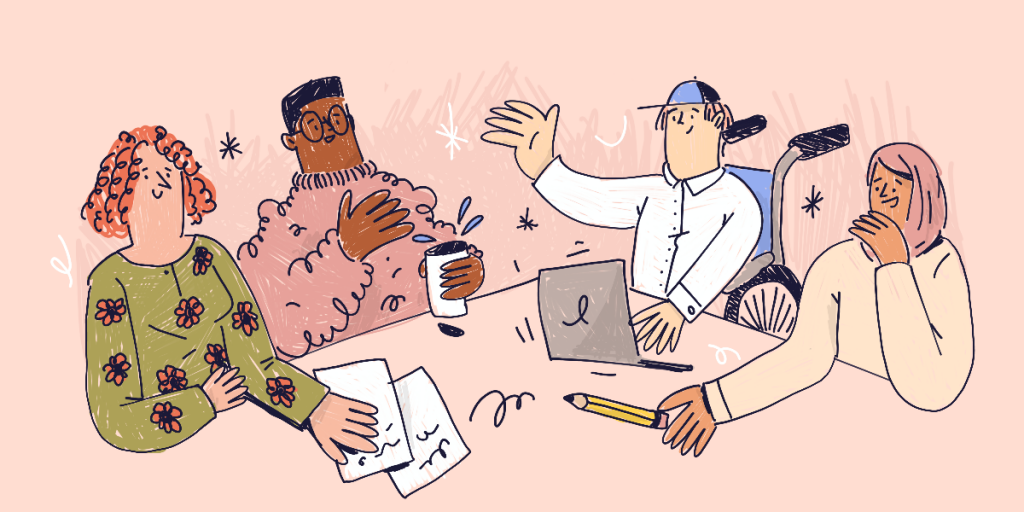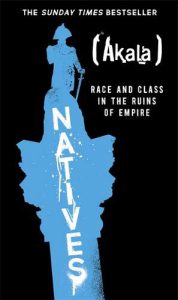Lauren Blackwood is one of the Equality, Diversity and Inclusion Project Officers at King’s. Lauren has penned a blog post using her own personal experiences in Higher Education to highlight the importance of introducing inclusive practices as well as increasing diversity.
Institutions across the UK are finally embarking on diversification projects, spurred by the Equality Act 2010, equality accreditations, and calls from those underrepresented and their allies. But it is important to ensure that the culture that we are inviting those underrepresented groups into does not hinder the broader goal of equality – this includes (but is not limited to) ensuring equal feelings of safety and belonging. In order to achieve this broader goal, we must, at the very least, start processes of decolonisation alongside diversification.
In this blogpost ‘diversification’ is understood as attracting underrepresented groups to an institution. This often includes recruiting staff at all levels who are representative of the frequently more diverse student demographics. This serves to broaden the scope of teaching styles and taught topics and to introduce educational perspectives which reflect the personal experiences of, and knowledge produced by, marginalised individuals and communities. As highlighted by Louise Autar “power dynamics, inherent biases, and (micro-)aggressions [that persist in Universities] can become hurdles in the learning process” (2017a, abstract), disrupting feelings of belonging, and in more extreme cases, safety. Therefore, it is important that diversification efforts go together with beginning decolonisation to ensure we are safeguarding as well as welcoming our most marginalised students.
Here, ‘decolonisation’ is defined as positively changing the longstanding, traditional, and exclusionary norms and culture of an institution. This may be done by rigorously questioning the university “structures that produce inequalities” (Friedberg and Felix 2019). Prominent examples of calls for the decolonisation of universities internationally include the University of Cape Town’s #RhodesMustFall campaign and UCL’s ‘Why is My Curriculum so White’. It is important that the process of decolonisation begins alongside, if not before, efforts to diversify, as “[i]n diversifying the university, ‘others’ are added without decentring the norm” (Autar 2017b, 318), thus maintaining their experiences of marginalisation and inaccessibility of the institution’s services.
As described by Kavita Bhanot (2015, 1) efforts to diversify without attempts to decolonise invite marginalised groups to the institution, but do not give those marginalised a seat at the table. This is to say that power imbalances are still maintained as well as systems and experiences of oppression. Without decolonising work, diversification exists as ‘tick-boxing’ and tokenism – work which does not listen to, or act on, the needs of those marginalised concerning equal and inclusive experiences within the workplace and the classroom.
Attempts to decolonise should start with listening to and collecting the experiences and recommendations of those marginalised within your institution, faculty, school, or department. It is important that, in doing this, data collection is in line with the Data Protection Act 2018. This is to advance the safety and confidence of marginalised staff and students, and to work in line with our legal obligations. Secondly, critically observe who is teaching and what is being taught. In my previous experience as a student, my degrees were predominantly taught by white western men, covering predominantly white, Western, masculinist theories and perspectives. This effected the extent to which I could relate to the material presented to me and proved to be an obstacle against my colleagues taking seriously my critiques of the material, critiques which reflected and grew from my disparate life experiences and subsequent knowledge. Thirdly, recognise and normalise understanding of the fact that there are barriers within Higher Education which disproportionately effect marginalised staff and students. Without recognising these historical barriers, it is unlikely that we will move onto commit to effective and sustainable change, rather than tick-boxing and tokenism.
Bibliography
Autar, L (2017a) Decolonising the Classroom. Tijdschrift voor Genderstudies. 20(3) Accessed at: https://www.ingentaconnect.com/content/aup/tgen/2017/00000020/00000003/art00008 pp.305-320
Autar, L (2017b) No Democratisation Without Decolonisation. Tijdschrift voor Genderstudies. 20(3) Accessed at: https://www.ingentaconnect.com/content/aup/tgen/2017/00000020/00000003/art00009# pp.321- 332
Bhanot, K (2015) Decolonise Not Diversify [PDF]. Media Diversified. Accessed at: https://www.academia.edu/39008909/Decolonise_Not_Diversify
Felix and Friedberg (2019) To Decolonise the Curriculum we have to Decolonise Ourselves. WONKHE. Accessed at: https://wonkhe.com/blogs/to-decolonise-the-curriculum-we-have-to-decolonise-ourselves/



